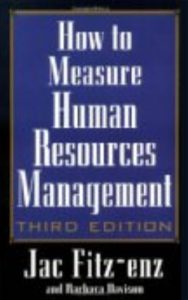This post is an excerpt from the forthcoming book, "150 Times Around the World," by Dr Jac Fitzenz. Its a culmination of his life's travels around the world and a compelling window into his vast journeys. Take a seat and come along for the experience of a lifetime as you join Dr Jac on his travels. Click here if you'd like to be notified when "150 Times Around the World" is available for purchase.
The Paper Bag – Chapter 2
If you want to have fun, hook up with the Brazilians. You’ve seen the Cariocas’ exuberance at Carnival. It’s there all year long just under the surface. It’s evident in the ways they work, play, dance, drive, drink and eat. The same verve is evident across this huge country. The people are an absolute delight to be with and seem quintessentially happy within a land that often appears dedicated to making life difficult. You have to work hard to keep up.
Their politicians’ quixotic attempts at governing would be laughable if they weren’t so painful to the citizens. One of the best examples of governmental mismanagement is the currency. Over the twenty years I was most active there, the currency was changed at least three times. In three decades it changed six times. Imagine this. Every day when your woke up, the first question was, what is my money worth today or even—what it was called; cruzeiro, cruzado, real (pronounced hay all).
 My initial trip to Brazil was to Sao Paulo in 1988. My first book, How to Measure Human Resources Management, had been published in 1985 and was being sold in Brazil, Argentina, Venezuela and Peru.
My initial trip to Brazil was to Sao Paulo in 1988. My first book, How to Measure Human Resources Management, had been published in 1985 and was being sold in Brazil, Argentina, Venezuela and Peru.
I was invited to speak at a management conference and run a training program. My message was about how to support managers with valid human capital data to improve their decision making. The first morning I watched a large crowd pour into the meeting hall. When you’ve spoken as much as I have, the mood of the audience is obvious as soon as they walk in the door. In this case there was an anticipative, enthusiastic, almost boisterous air as the delegates milled around the room greeting each other with big hugs and smiles. Gradually, they settled in to hear about this new, more positive, view of people as value-adding entities. To be honest, part of that eagerness is just being Brazilian. Leaping into the topic quickly, we joined forces in an intense discussion of this return on investment concept. The involvement was gratifying. Immediately, we were off to the races.
The delegates were primarily managers from Brazil’s large corporations. Sao Paulo is an energetic, major industrial city of Brazil with a population of almost three million. From a business standpoint I thought of it as the Pittsburgh/Cleveland region of Brazil. As I presented my rationale, concept and methodology there were many questions, few objections, and an apparent sincere interest in how to drive the change of human capital from an expense to a value contributing asset. They wanted to know not only the theory, but also tools and techniques for leading the transformation. Challenging questions added to the energy in the room. It was a joy to see and feel how eager the people were to learn. By the end of the program the delegates here you are and why.
As the evening drew to a close with many thanks and kind words, I was handed a small brown paper bag, the type that grocery stores used before plastic contaminated the world. It certainly looked out of place among the surrounding elegance. I opened the bag and looked inside, naturally curious about its contents.
Neatly wrapped in small bundles were packs of US $20 bills! Brazil was in one of its many strict currency control periods, which meant no one was supposed to export dollars. My first thought was, how do I get this through U.S. Customs? It looked like a small-time drug deal.
Adding to the problem was the issue of declaring money brought into the U.S. Even though I had legitimately earned the money and would declare it as income on my tax return, it would probably take a lot of time explaining it to Customs on arrival. There wasn’t much I could do, except take the money and pray I wouldn’t be stopped. Although the statute of limitations is long past, I admit nothing and am not going to say more about this. The point is that unexpected things can occur when you find yourself in a foreign country.
I’ll write more this beautiful South American country and its extraordinary people later.


Recent Comments